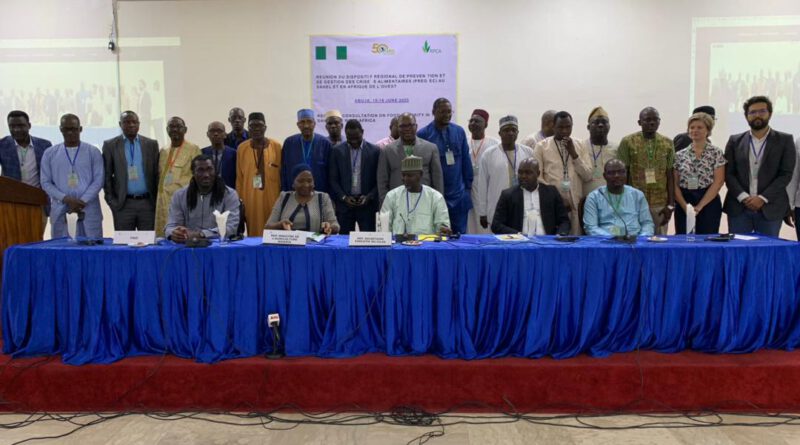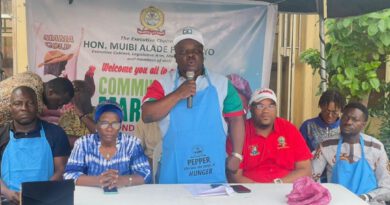Experts Across West Africa converged on Abuja to tackle food crisis and Prevent malnutrition
Hope of increase food supply and hunger reduction across West African rises as Experts across West Africa states and Sahel Savannah region are currently in Abuja for a two-day meeting to deliberate on the prevention of food crisis and malnutrition in the region.
Dr Abdou Ali, Head of Information and Relationship Department, Agricultural and Hydro Metrology (AGRHYMET regional center), while speaking with newsmen said that the meeting was crucial to the region.
According to him, the meeting was to brainstorm on response to food and nutrition situation in West Africa and Sahel, and to have big initiation on having abundant food in the region.
He started further that the meeting was also to forecast for the future about the situation of food and analyse the situation of food market to avert negative impact in the region.
In his words, “This period of this raining season play a very important role in food and nutrition situation in our region, coming down to what we met here in Nigeria, we need to analyse the situation of the market, the global impact on our vision and focus.
“The perspective of the prospect of how it will be for the initiation for the upcoming months, it is very important, because you know if the raining season is going to be very dry or bad, this will have a huge impact on the food security.
“If we are going to have more rainfall, the situation will be very good for food provision and this will also have a very good impact on food situation.
“So the fact that we are here is to analyse those information on the region and make the conclusion on how leadership will support food security in the these region,” he said.
He said that from the observation of the forecast that was done in May, there is an overall expectation of having an average rainfall situation in the region with a little effect on food production.
Ali said that from the information available, the region is a little bit confidence that it will not face a general drought situation and this will have a good impact on the region.
Mr Kouacou Koffy, Regional Emergency and Resilience Team Leader for West Africa and Sahel, Food and Agricultural Organisation attributed some of the conflict in the region and Russian/Ukraine war to shortage of food in West Africa and Sahel.
Other factors he mentioned working against large production of food are climate change, deficit of fertilizer, increase in price of cereal and others.
He said that FAO is putting effort together to know the root causes of some of the crisis, and would support government of all countries in the region to boost food production.
Koffy said that FAO would continue to do it best to boost production of food and encourage all the partners to join hands together and put effort together to allow food population to grow.
Dr Issofou Baoua, Chief Regional Coordinator, Permanent Interstate Committee for Drought Control in Sahel (CILSS) called on regional stakeholders to look for ways to fight against food insecurity and malnutrition.
According to him, he is of the believe that the two days meeting will discuss a lasting solution to food insecurity in the region.
The Permanent Secretary, Federal Ministry of Agriculture and Rural Development (FMARD), Dr Ernest Afolabi, said that the ministry has responded to some of these challenges militating against high food production in Nigeria.
Afolabi who was represented by Mrs Fausat Lawal, Director of Special Duties in the ministry said that the ministry had supported National Programme for Food Security (NPFS) in the implementation of food security and livelihood support programme.
He said that several interventions and supports in form of farm inputs and equipment where made available to vulnerable farmers in areas identified with high food and nutrition insecurity, particularly to the identified food victims.
According to him, this intervention has covered twelve states of the Federation where 4,896 farmers benefited.
He disclosed that in 2022, 12,397 selected vulnerable farmers from the result of the CH-Analysis benefited from the intervention which was supported by the Africa Union Commission and the ministry.




